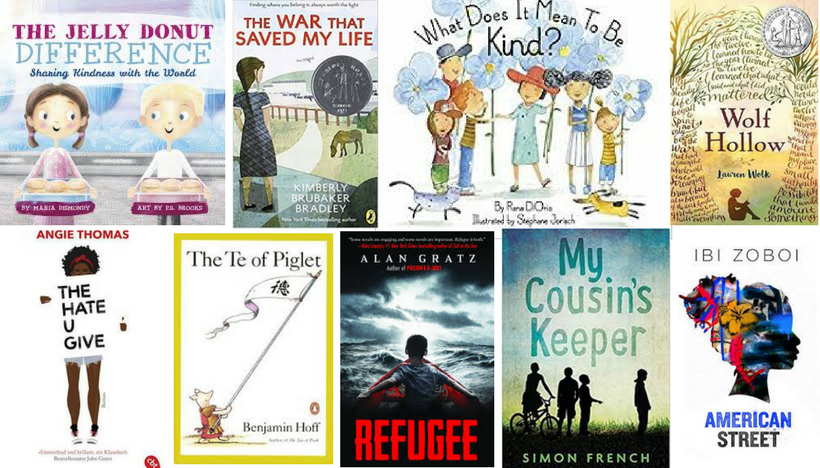This post is written by member Holly Johnson. This is part of an ongoing monthly series from the NCTE Standing Committee on Global Citizenship.
“A little consideration, a little thought for others, makes all the difference.”
—Winnie-the-Pooh (A. A. Milne)
The above quote comes from a whimsical, imaginary bear who seems very wise in his simple philosophy of the world. In essence, at his core, Pooh reflects—and fosters—kindness, which seems to come naturally. Kindness, however, is far from natural, and is so much more than a simple platitude or social weakness. It is often one of the most difficult exercises we can undertake, especially in times of crisis, anger, or pain. And this year, given the headlines and situations across the world, kindness seems to be at a premium. Many of the circumstances that gained our attention throughout 2017 seem to reflect a sadder, less caring, and more dangerous world inhabited by groups and individuals who have forgotten their own—and others’—humanity. Yet, kindness has the potential to reestablish or create our common and valued humanity.
There are many ideas about kindness, love, and compassion. They can be found on the internet, available at any time to anyone who wishes to look. People have read and written about these sentiments since time immemorial, and most of us pine to be on the receiving end of actions that embody them throughout our lives. This seems only human. To make change in the world—to combat a sense of a sadder, bleaker world—we must not only desire kindness for ourselves, we must practice it in the world. And this is why Winnie-the-Pooh is most appropriate for our last blog posting of 2017.
Pooh is actually most appropriate for our classrooms, regardless of grade level. Younger children can work through Winnie’s world combined with other books such as DiOrio and Jorisch’s (2015) What Does It Mean To Be Kind? or The Jelly Donut Difference: Sharing Kindness with the World (Dismondy and Brooks, 2017). These books address the concept of kindness and actions that promote kindness that start younger students thinking about living more kindly in the world. They do not necessarily deal with the difficult decisions often required by those who choose kindness in actions that defy the status quo, which can be addressed in books for older students.
Older students can work through Pooh on a more philosophical level using both Milne’s texts and other philosophical texts such as Benjamin Hoff’s The Tao of Pooh (1983) and The Te of Piglet (1993). Combined with other readings about actions in the world that promote kindness at a global level, students will have the opportunity to consider the power of kindness, the strength it takes to enact kindness when it requires going against the grain or creates conflict within family and friendships, and its potential for making radical change in the world.
Ideas for Working with Students
- Sharing our New Year’s resolutions and how those resolutions can make a difference in the circumstances of others might move all of us to think more globally about how citizenship works.
- Using quotes about change, kindness, and compassion can lead to students’ personal writing as well as reading about those who have made positive change in the world.
- Books such as The Hate U Give (Thomas, 2017); American Street (Zoboi, 2017); Wolf Hollow (Wolk, 2016); My Cousin’s Keeper (French, 2014); The War That Saved My Life (Bradley, 2016); and; Refugee (Gratz, 2017) show circumstances that afford discussions of how kindness or consideration have the potential for understandings between people and perhaps, then, a better world.
As we end 2017 and move rapidly toward 2018, many of us will reflect upon the changes needed in the world, in our communities, in our circumstances, and in ourselves. Such an exercise has the potential for making a positive difference in the year to come, but it can also be painful and require more of us than we might first imagine. Kindness is hard won in the world; it takes real strength and often a discipline of mind that will test our courage. But as we contemplate the world as it is and what it might become, we will need strength and courage. This month we might take a few moments to give a little thought to the concept and actions of kindness, to give a little consideration to ways we can alleviate hurt and pain both locally and globally, to move beyond our own comfort level, and by doing so, make all the difference. For as the singer Jewel notes most profoundly in her song “Hands,” “In the end, only kindness matters.”

Holly Johnson is a Professor in the Literacy and Second Language Studies Program at the University of Cincinnati where she teaches courses in literature and literacy methods.

